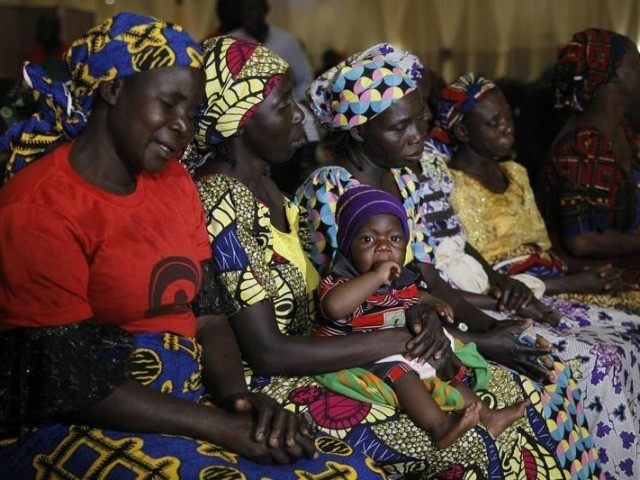At least five parents from Chibok, Nigeria, have received calls from their daughters’ phone numbers recently, two years after Boko Haram kidnapped them and more than 200 others from their secondary school.
“Five parents informed me that they have been receiving calls from their daughters’ phones, but when they called back, the persons that responded said the phones were their own and that they should stop calling the lines,” community leader Tsambido Abana told Nigeria’s Pulse newspaper. “We don’t know if the network (telecom firms) had allocated the girls’ lines to other persons or if the callers were just playing pranks on the parents; we will report this to the government for security agencies to investigate.”
In a video published by CNN Thursday, the abducted Chibok girls appear, asserting that all the girls are “well.” Parents have identified their daughters in a new video, lifting hopes for loved ones that the girls are still alive. Experts believe the video is the first time anyone outside of Boko Haram has seen the girls in two years.
The video shows 15 girls, and experts believe Boko Haram filmed it in December. Yana Galang told Voice of America the girls in the video “are our girls,” but her daughter did not appear in it. The government and parents remain skeptical about the video, however.
“We are also a bit worried and concerned that, two years after captivity, they would be under no stress whatsoever, they would not have changed physically,” said Lai Mohammed, the minister of information and culture. “But despite that, we are still reaching out. … We would want more evidence that this video is credible.”
Nigerians also took to the streets across the major cities to protest the lack of action by the government to find the missing girls and destruction of Boko Haram. The Associated Press reported that Nigerian Vice President Yemi Osinbajo planned to visit Chibok and meet with angry parents. The community remains without schools two years after the Boko Haram raid.
“Boko Haram has achieved its aim. They say they don’t want us to have Western education and our children don’t,” said Yakubu Nkeki, who runs a support group for the parents of the kidnapped girls.

COMMENTS
Please let us know if you're having issues with commenting.